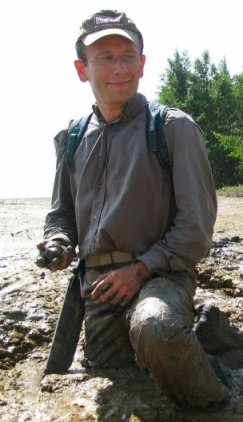AMAP Agenda
Patterns and drivers of leaf thermoregulation in rainforest trees of the Australian Wet Tropics
Rising global temperatures are challenging the physiological limits of tropical rainforests. However, trees can exhibit resilience to warming through a combination of increased heat tolerance as well as thermoregulation strategies that maintain leaf temperatures within safe operating margins. These strategies are determined by variation in traits t... [Lire la suite...]
PS 2 salle 201 + visioconferenceSimulation and machine learning models for bias assessment and reduction in leaf area density estimators in tropical forest
Leaf Area Index (LAI) is a key parameter regulating water and carbon fluxes. Current LAI estimation methods have inherent biases, particularly from woody components. In this presentation, I will present how our work employs trial emulation to quantify these biases. I will also introduce SOUL, a deep learning model that uses only point coordinates t... [Lire la suite...]
Salle 109, Bâtiment 9, IMAG, Campus TrioletAmazon forest resilience beyond carbon stocks: a trait-based modeling approach
RIUS Bianca
Leaf Area Index (LAI) is a key parameter regulating water and carbon fluxes. Current LAI estimation methods have inherent biases, particularly from woody components. In this presentation, I will present how our work employs trial emulation to quantify these biases. I will also introduce SOUL, a deep learning model that uses only point coordinates t... [read more...]
PS 1 salle 44How is diversity maintained in an exceptionally rich community? the roles of temporal variability, spatial heterogeneity and interactions
Leaf Area Index (LAI) is a key parameter regulating water and carbon fluxes. Current LAI estimation methods have inherent biases, particularly from woody components. In this presentation, I will present how our work employs trial emulation to quantify these biases. I will also introduce SOUL, a deep learning model that uses only point coordinates t... [read more...]
PS 2 salle 201Collaborative management partnerships strongly decreased deforestation in the most at-risk protected areas in Africa since 2000
DESBUREAUX Sébastien
Leaf Area Index (LAI) is a key parameter regulating water and carbon fluxes. Current LAI estimation methods have inherent biases, particularly from woody components. In this presentation, I will present how our work employs trial emulation to quantify these biases. I will also introduce SOUL, a deep learning model that uses only point coordinates t... [read more...]
PS 2 salle 201Derniers résultats et perspectives dans les recherches sur les mangroves guyanaises
AUGUSSEAU Paul-Emile BLANCHARD Elodie CATRY Thibault MARSAL QuentinLeaf Area Index (LAI) is a key parameter regulating water and carbon fluxes. Current LAI estimation methods have inherent biases, particularly from woody components. In this presentation, I will present how our work employs trial emulation to quantify these biases. I will also introduce SOUL, a deep learning model that uses only point coordinates t... [read more...]
PS 2 salle 201Biodiversity patterns and conservation of Caribbean sendemic trees
TESTE LOZANO Ernesto
Leaf Area Index (LAI) is a key parameter regulating water and carbon fluxes. Current LAI estimation methods have inherent biases, particularly from woody components. In this presentation, I will present how our work employs trial emulation to quantify these biases. I will also introduce SOUL, a deep learning model that uses only point coordinates t... [read more...]
Webinaire

